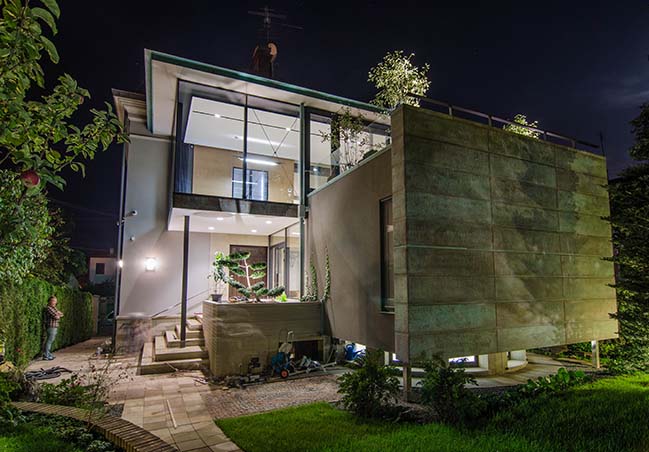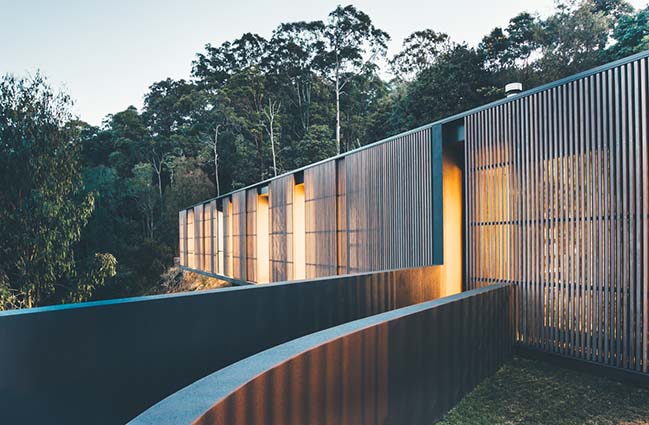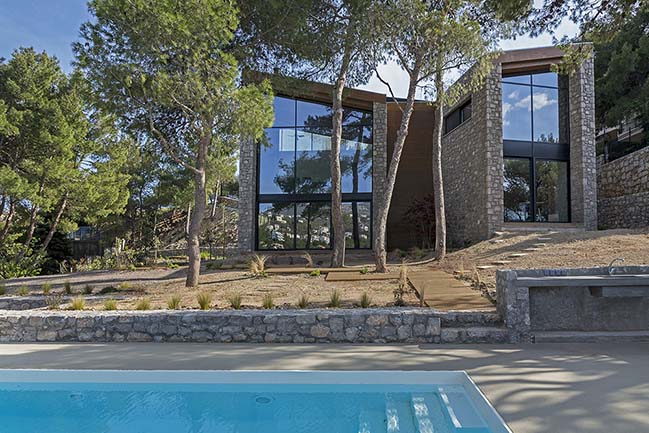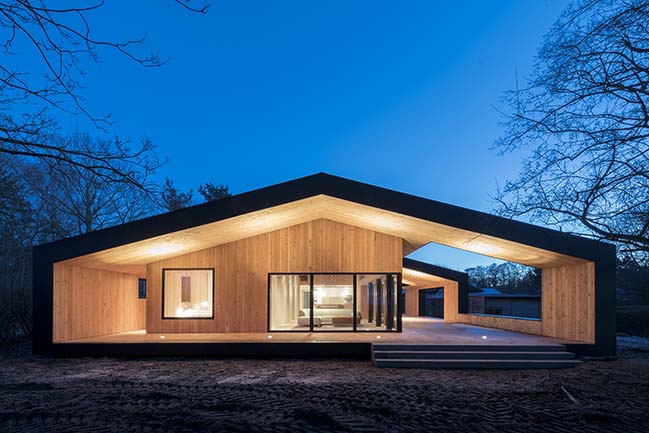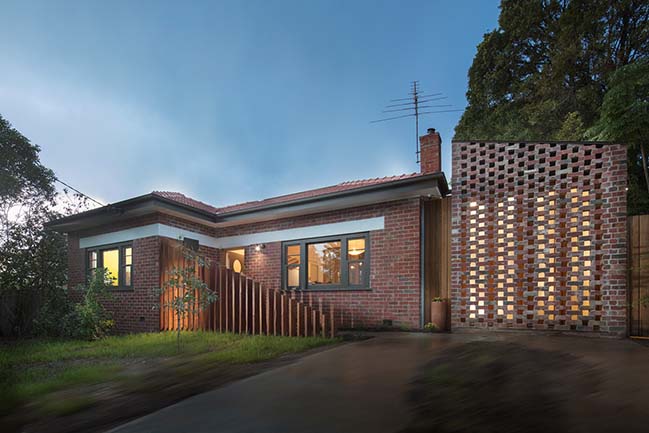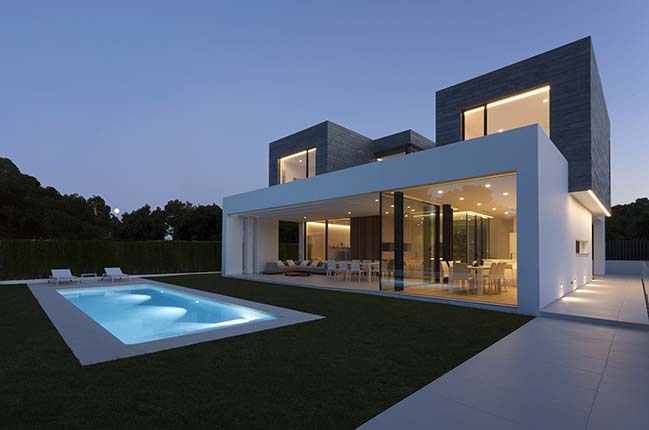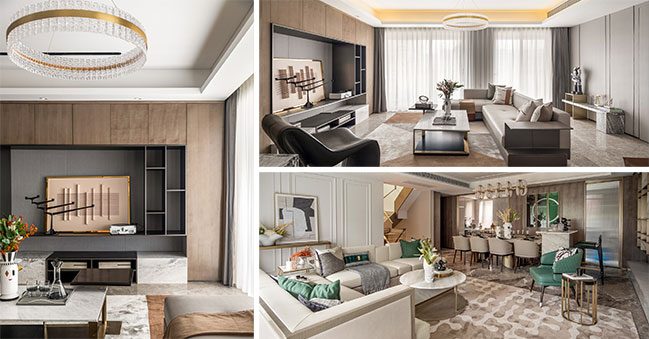02 / 13
2018
Designed by EKAR. Re-Gen House is a modern villa for multi generations in Bangkok where every generation can live together.
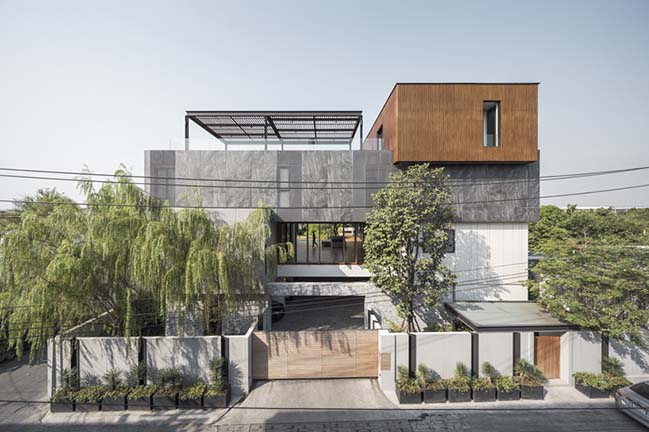
Architect: EKAR
Location: Jaransanitwong, Bangplat, Bangkok, Thailand
Architect : EKAR + JBA | Ekaphap Duangkaew + Jaturon Buranajade
Landscape Architect : Groundsplay Studio
Interior Architect : Define Studio
Photograph : Chalermwat Wongchompoo
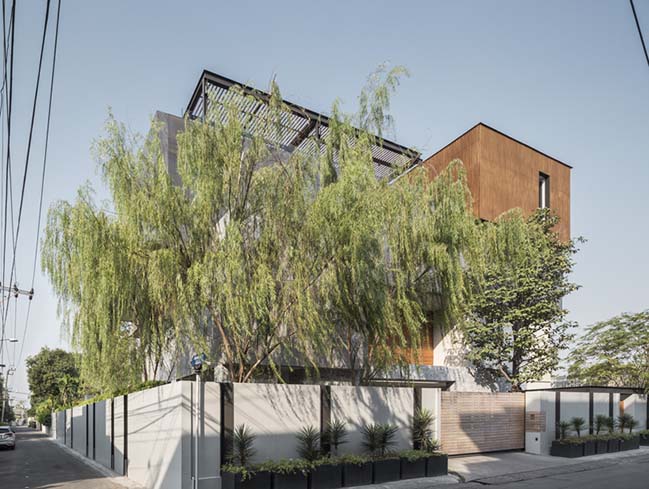
Project description: After living with his parents till the time he has his own family, our client moved out to his own house located opposite his parents’. The very first intention of our client was to renovate the existing house to be suitable for his first-born daughter - Meena. However, after the completion of architectural drawing, our client changed his mind. From his experience, it is not pleasing when it comes to living apart from his parents. Being a new parent makes our client become truly thoughtful about his daughter and her future. Therefore, he bought another land opposite his house and next to his parent’s house, with an effort to create a place where he can live with his child Meena till the time when she has her own family.
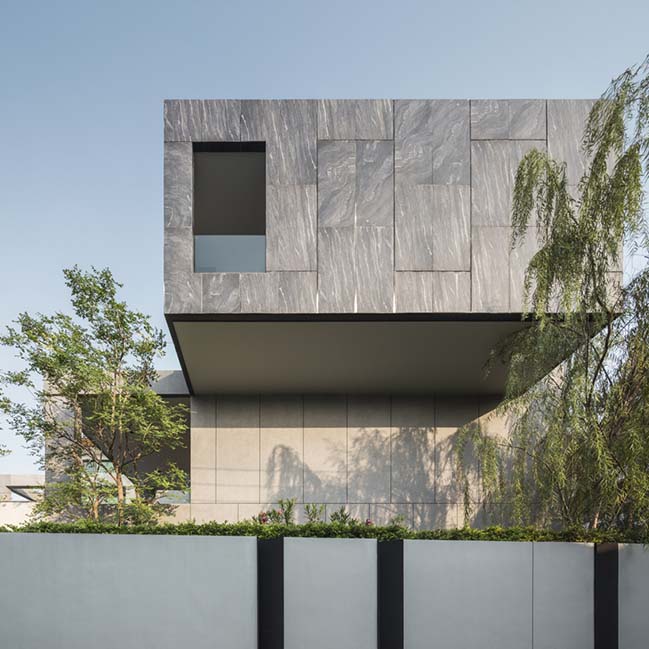
Long before Bangkok established, Thai people live in a big family which consists of grandparents, father, mother and children (and sometimes including uncle and aunt). The way of Thai’s life has influenced on the architectural design of Thailand. A traditional Thai house in general is composed of a variety of small detached-houses in which each small family lives, and a patio in a middle of the houses, where connects each family together. The house sits on poles which creates a high open space under the house, allowing good wind flow to pass through and lowering temperature inside. In addition, protecting the dwellers from flood and wild animals. Therefore, this ground floor is mainly for parking and storage. While, the residential area is on the first floor of the house where life starts. The attempt is to enhance living quality as well as family relationship; meanwhile, individuals still have their own private space.
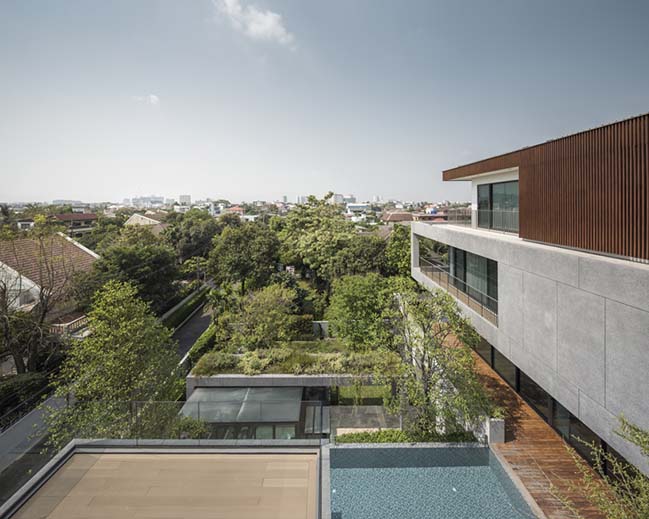
Nonetheless, the modern context is full of complexity creating complication in Thai people’s life. Land prices soar in capital forcing people to live apart from their family. Modern people tend to move into micro apartments nearby their workplaces or to small detached-houses outside the city where the land prices are still affordable. The question is whether or not it is possible that we could create a house which brings back the comfort of traditional Thai houses to the modern context.
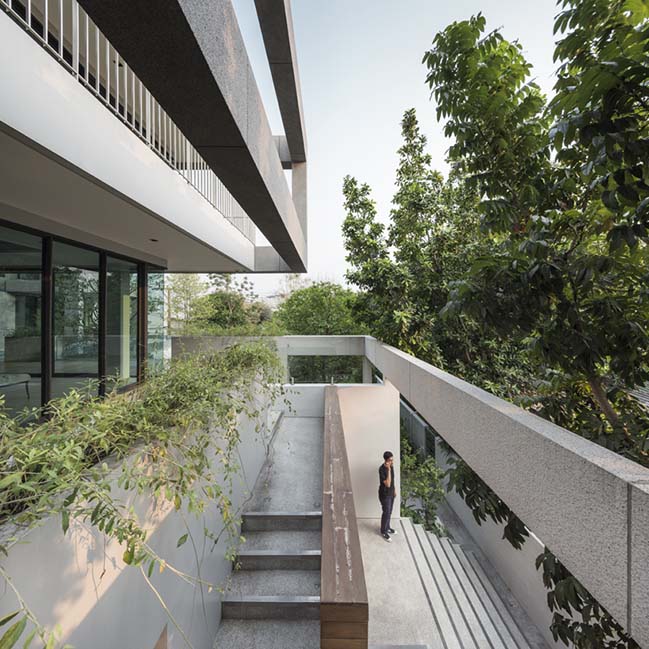
The land is located on the corner of a road, and next to the house of client’s parents where he grew up. With an area of 640 square-meter, the architect embrace the concept of traditional Thai architecture to the planning to maximize this limited area. By creating L-shape building and lifting all residential spaces to the upper floors; leaving ground floor free for storage and parking area of ten cars. The wall between the parents’ house and the new one is eliminated and filled with a big new garden along the existing garden of parents’ house to create consistency of space.
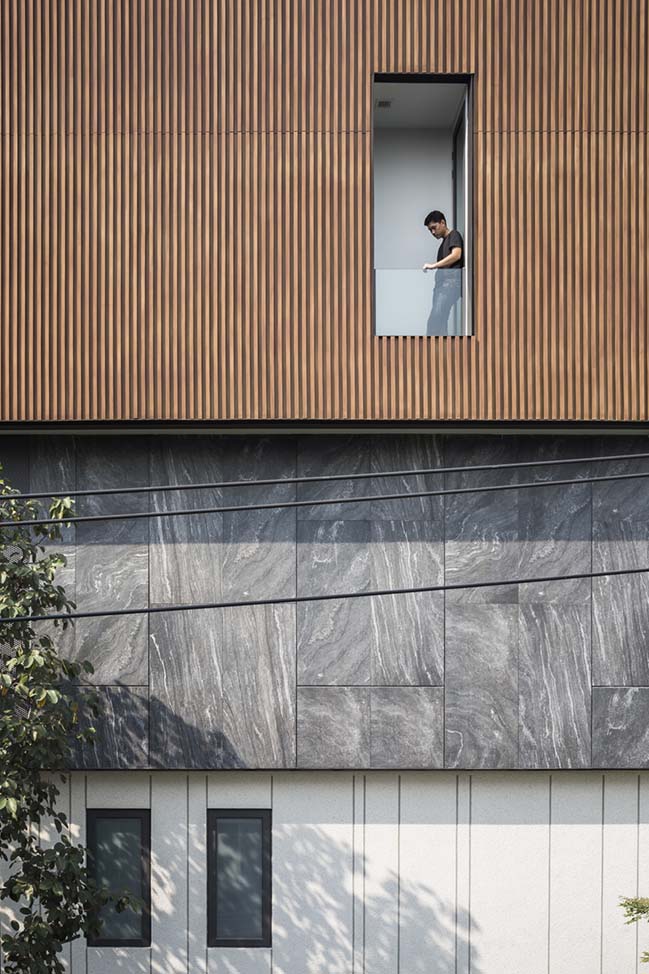
Regarding client’s wish, the architects divide the floor planning of four-storey house. The second floor is meant for the client’s family, while the third floor is for his daughter’s future family. Hence, in order to gather everyone in the family (and his daughter’s future family) together, the first floor is a focal point. On this floor, there are an entertainment room and a grand patio which become the common area for the client’s family (and also the future family). Furthermore, this floor is inspired from a traditional ground level in which natural elements are closely surrounded. Ranging from the swimming pool on the same floor which reflects a riverside sensation to the elevated yard across the swimming pool. The gap between the swimming pool and the elevated yard allows a tree from the ground floor to grow through. Also, allowing sunlight to stream in a glass pavilion (gardening pavilion) underneath.
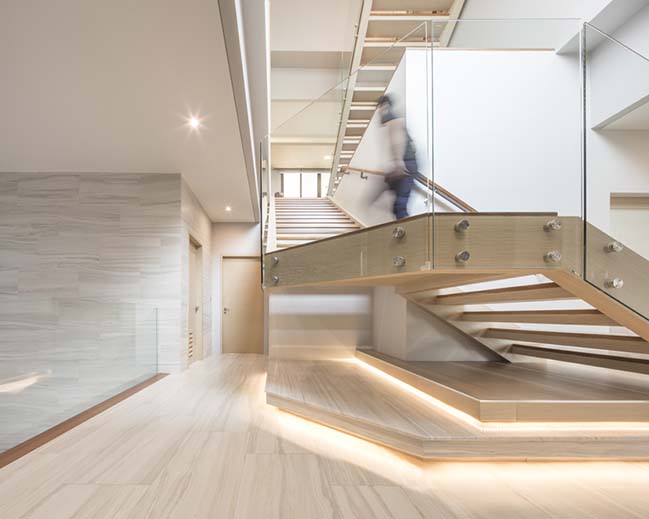
On the grand patio, users’ eyesight will be led to the swimming pool, the elevated yard, the top of the tree (grew on the ground floor), the existing garden of parents’ house, and to the parents’ house, respectively. The intention is to make our client feel close to their parents. As well as to lay down watching Meena running around on this grand patio, like on a real ground. East side of the land is opposite the eight-storey economic apartment. Therefore, the architects conceal the house on this side, in order to block unpleasant view as well as to protect the residents from prying eyes, by providing windows or voids at the minimum number. Back to the ground floor, there is a main entrance on the east side which is made of solid wood. While on the first floor, on the same side, there are floor-to-ceiling wooden-grill window pivots which can be opened to allows ventilation, and can be closed when privacy is in need. In terms of material selection, each floor of the ReGEN House features different materials, such as wood, stone-texture coated wall and stone-like tiles. This material combination creates a uniqueness to the facade which still fits into the surrounding context
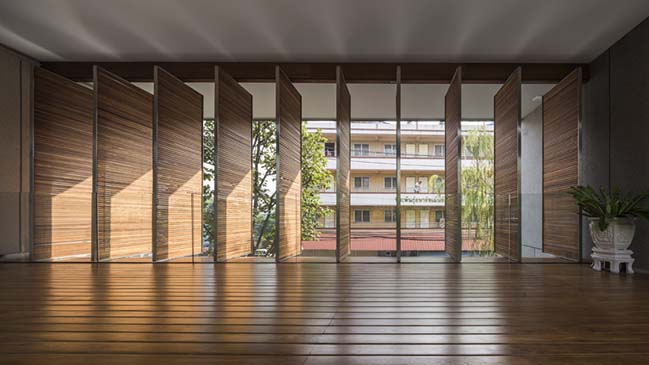
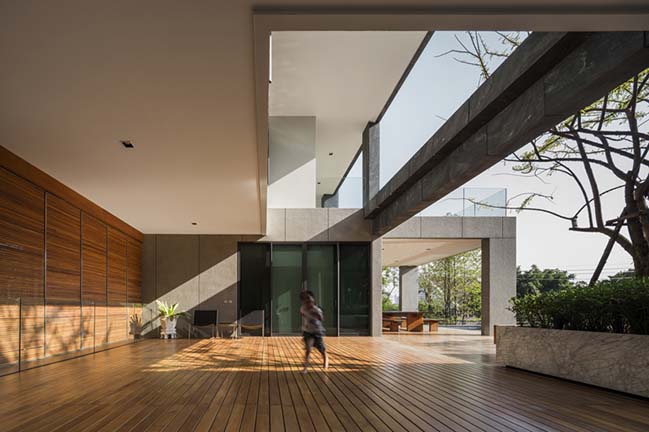
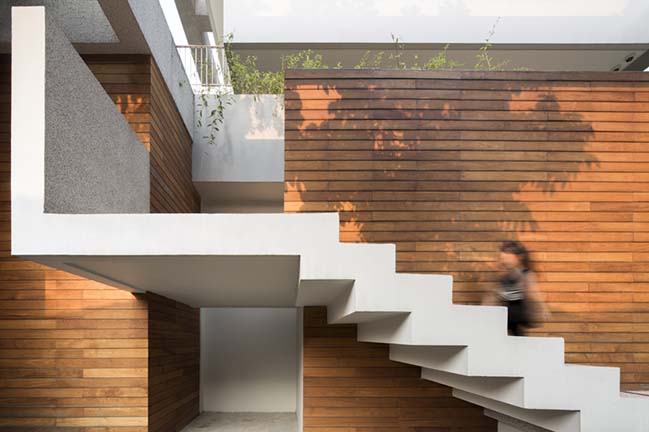
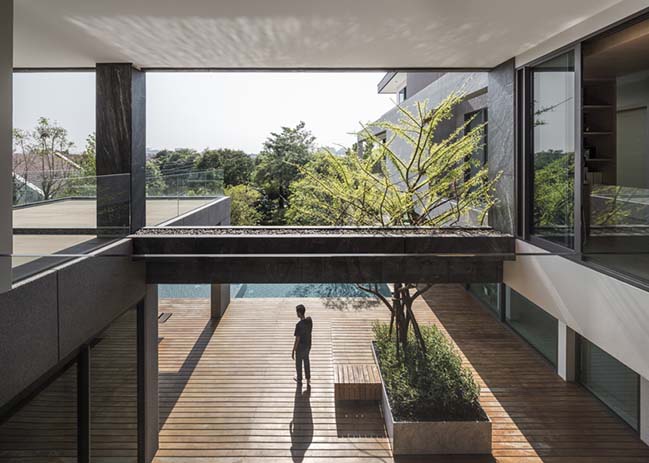
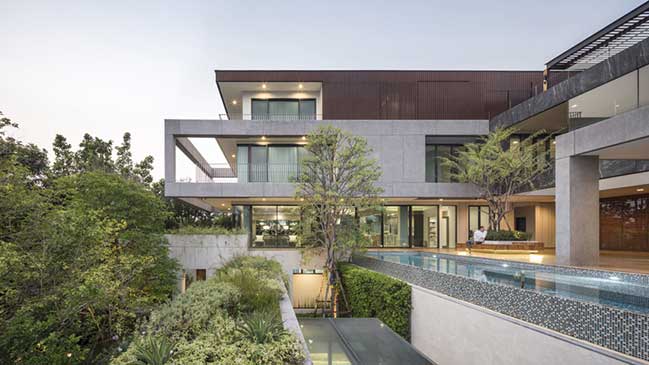
> H Cube House by Studio Lagom
> Aluminium House by Ayutt and Associates design
Re-Gen House in Bangkok by EKAR
02 / 13 / 2018 Designed by EKAR. Re-Gen House is a modern villa for multi generations in Bangkok where every generation can live together
You might also like:
